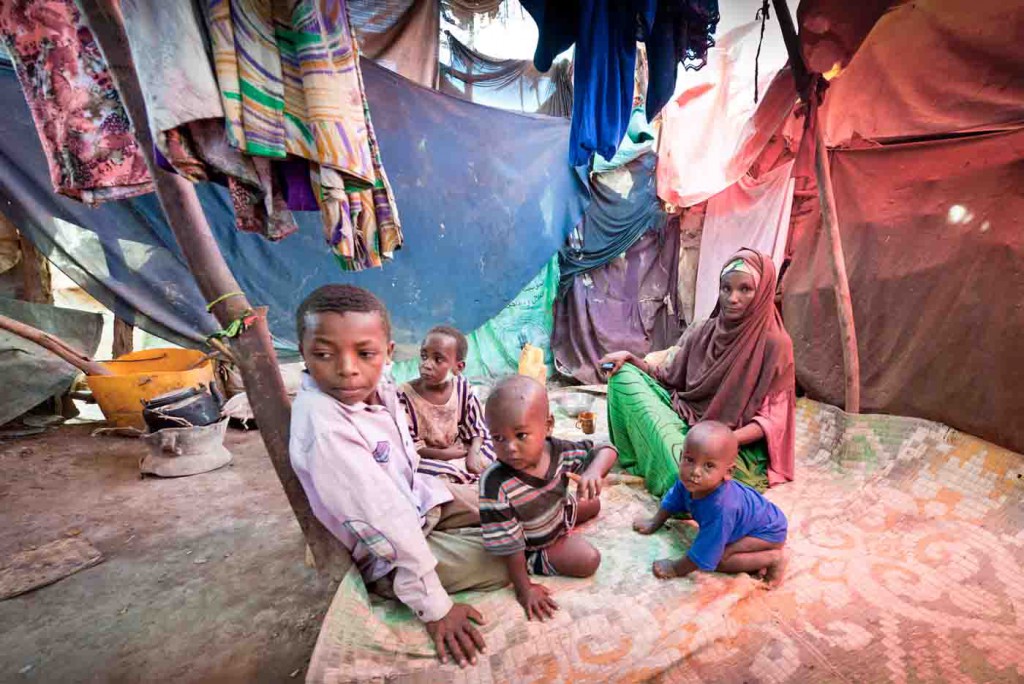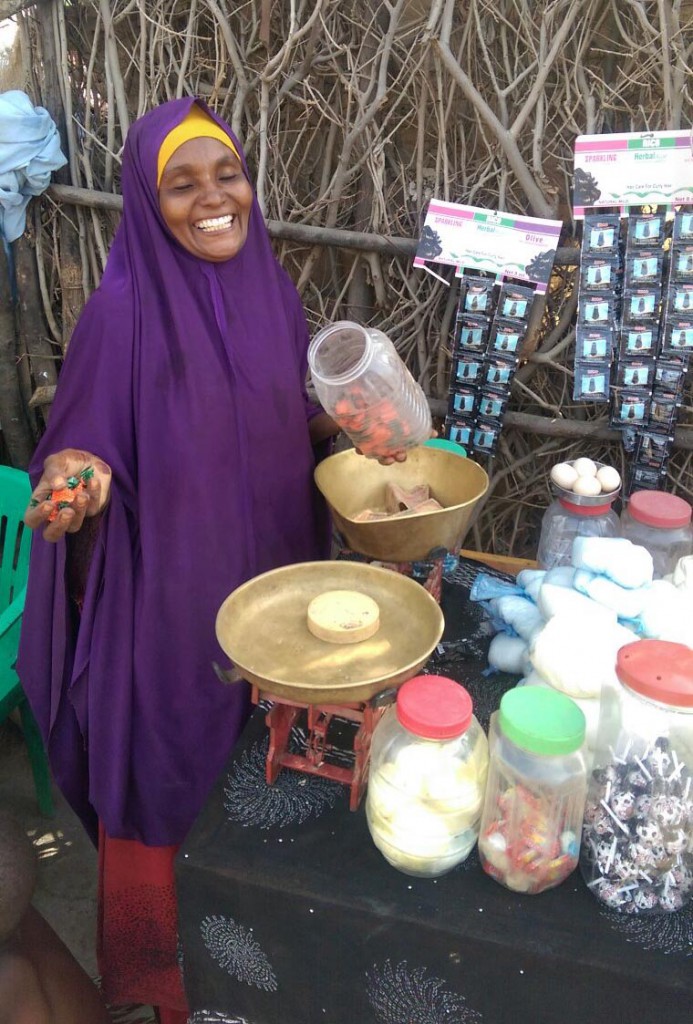
Fatuma and her six children lived in a makeshift hut made of wood and cloth in a displacement camp in Beletweyne town. ©ICRC/Pedram Yazdi
Fatuma and her family were living a difficult life in a Somali displacement camp about a year ago. Her kids were frequently hungry. School was an unaffordable luxury. Today, Fatuma, with her wide smile, can share a success story.
Fatuma and her six children had fallen on hard times in 2015. They were forced to depend on food distributions from humanitarian organizations since neither she nor her husband could find work in their displacement camp in Beletweyne, a town in the Hiraan region of central Somalia.
Then things began looking up. After receiving a small sum of money as a way to seed a small business, Fatuma now runs a camp kiosk that sells items like milk, sugar, tea leaves and spices. With an average daily turnover of 30 USD, she earns enough to meet her family’s basic needs.
In an interview in 2015, she sat in her makeshift hut watching over her playful children who seemed oblivious of the world around them.
“I came here because I ran away from the war where I experienced hunger and hardships. That’s why I moved to this part of the country,” she said back then, her voice cracking with emotion. She said that if she could make money from a small business, it would be possible to move out of the camp.
Fatuma was among a group of 875 expectant and breastfeeding women living in displacement camps who received 280 USD to start an income-generating activity. The ICRC recognized that the group of women needed support to meet their family’s daily needs.
The idea behind the income support programme was to assist households that are susceptible to malnutrition, an alarming problem in Somalia that is widespread in displacement camps.
One year later: Three meals and kids in school

Somalia, 2016. Fatuma has set up a small food kiosk at the displacement camp where she lives in Beletweyne
For Fatuma, the $280 gave her a much-needed lift. A year down the line, her desire to provide for her family has paid off.
“A lot has changed since. Unlike before, we can now afford three meals a day. Two of my children go to school. I am now self-reliant and happy with the little profit I make at the end of the day,” said a hopeful Fatuma, her wish to someday move out of the camp still in her sights.
On this International Women’s Day, Fatuma’s journey towards self-sustenance offers an opportunity to reflect on the remarkable progress made by women like her despite the impoverished, challenging environments they find themselves in.
Income support remains an enabling factor only. Fatuma’s success is a testament to her resilience, her tireless commitment to her family and tenacious hard work.
Key facts about Somalia
- Somalia remains one of the worst humanitarian situations in the world. Decades of protracted armed conflict coupled with recurrent climatic disasters have left millions displaced, mostly women and children. The ICRC has been working to alleviate the suffering of these victims.
- Nearly 305,000 children under the age of 5 are acutely malnourished, with 58,300 of them severely malnourished, according to humanitarian figures.
- In 2015, 5,235 women and children benefitted from the therapeutic and supplementary feeding programme at Somali Red Crescent Society (SRCS) clinics across Somalia.
- Close to 155,000 consultations, about 35% of the total, were with women over the age of 15 years at SRCS clinics offering mother-child-health OPD (outpatient care).

